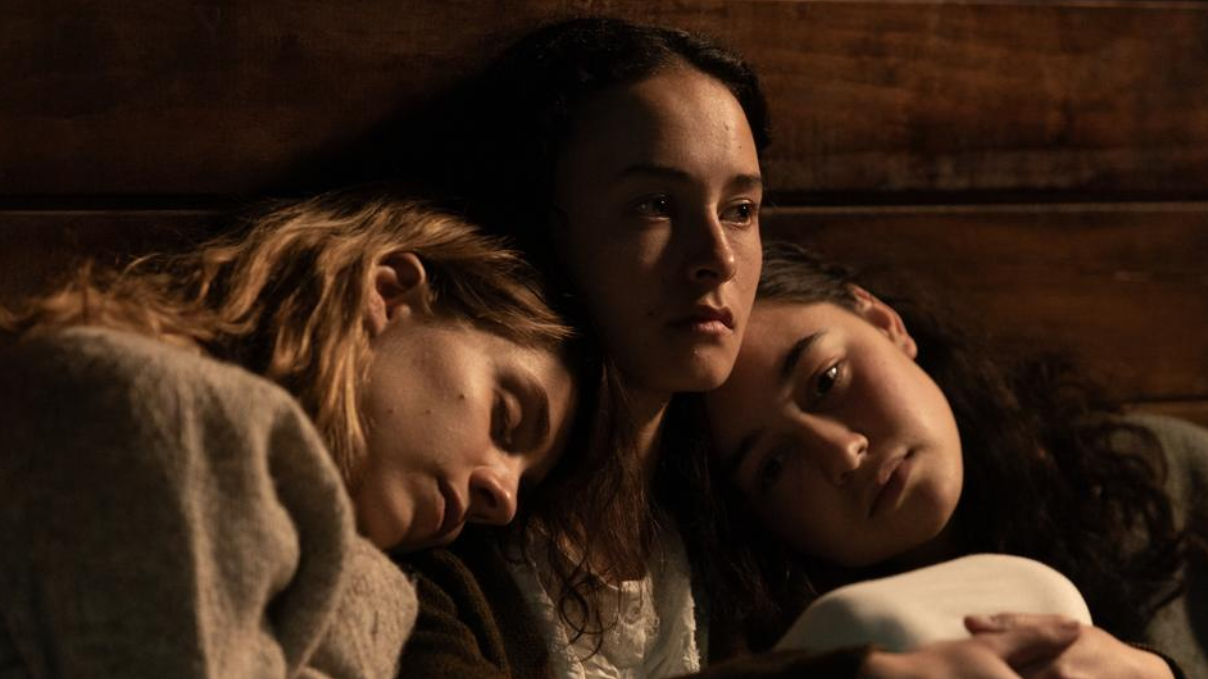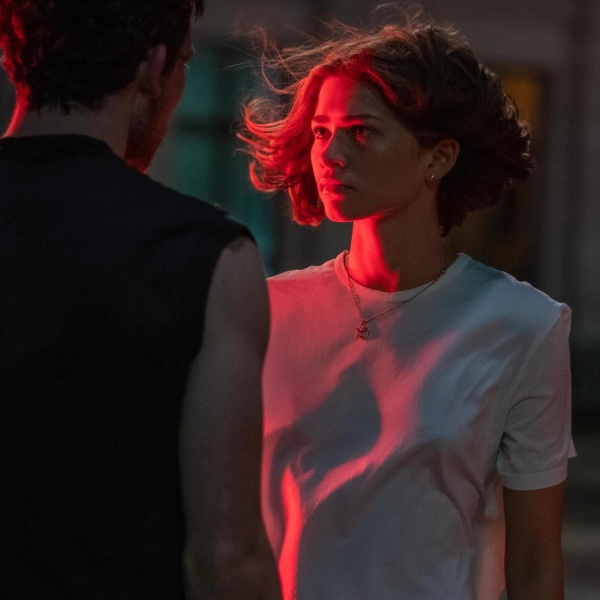A small but spirited 1954-set drama about a group of “delinquent” teenage girls who plan a daring escape from the one-dock New Zealand island where they’ve been sent for institutional Christianization, Māori filmmaker Josephine Stewart-Te Whiu’s “We Were Dangerous” does its best to remain upbeat as the agents of colonization try to assert their control over its characters’ bodies. It’s a promising debut that does its best to remain upbeat as the agents of colonization try to assert their control over its characters’ bodies, as Stewart-Te Whiu skillfully combines the pluck of “A Little Princess” with the irreverence of executive producer Taika Waititi’s “Hunt for the Wilderpeople.”
Light on its feet even in the face of forced sterilization, Stewart-Te Whiu’s debut wields its upbeat tone as a rousing show of defiance unto itself; if that means whittling this story down to its 82-minute skeleton in order to keep the darkness at bay, it’s at least a compromise the filmmaker strikes with clear intention. After all, “We Were Dangerous” isn’t a doom-laden exposé about a specific episode of female dehumanization. It’s a hopeful — sometimes borderline exuberant — rallying cry for girls to stick together across the various divides that people use to disempower them.
Self-possessed from the moment it starts, Stewart-Te Whiu’s film introduces us to New Zealand’s School for Incorrigible and Delinquent Girls with a level of cheek that sets the tone for the story to come. Maddie Dai’s spare but deep-reaching script is narrated by the school’s overzealous matron (Rima Te Wiata), who waxes poetic about the benefits of British colonization as her students walk in circles with books balanced atop their heads. The Matron insists that she’s “saving uncultivated minds,” and she follows through on that mission with a conviction that belies her conditioned self-hatred; “life’s easier if you don’t resist” is the motto of a woman who’s been completely undone by misogyny, and developed a severe resentment for all the girls who haven’t gotten there yet.
Her young charges see right through it. As the handclaps of Cam Ballantyne’s energetic score ripple over the soundtrack, the thoroughly “irredeemable” Nellie (played by “The Wilds” breakout Erana James, brimming with fun and fire) leads her friends on a midnight escape from the school where they’ve all been sent against their will. They fall just a few inches short on freedom, which results in far more severe measures than any have known thus far: The Matron will relocate her class to a tiny island previously used as a leper colony. “If the island can contain leprosy,” one of her male superior’s reasons, “it can probably contain a few girls in heat.”
He’s talking about girls like Louisa (Nathalie Morris), who was exiled from her affluent family and labeled a “sex delinquent” after she developed a crush on the — female — tutor her parents hired to help get her back on track. And 12-year-old Daisy (Manaia Hall), who sees Nellie as a far more proper role model than any of the Christian authority figures who believe that wild, unmarried women are a plague that can only be cured in the womb. For her part, Nellie didn’t come from a broken home; she wasn’t raised by some godless harlot who taught her daughter to live in sin. She was just unclaimed. She didn’t belong to anybody, and so the state took it upon itself to own her. Fix her. But as one character observes: “It’s very difficult to redeem a girl who believes there’s nothing wrong with her.”
And Nellie’s early days on her new island home only strengthen her feeling that the kids aren’t the ones in need of salvation. The wilds of the island where the girls are relocated — shot on Ōtamahua, and captured with a rugged, free-range beauty by cinematographer María Inés Manchego — have a way of embarrassing the colonial strictures that the Matron brings to bear upon them, and the field trip energy of the whole ordeal inspires a new degree of closeness and mischief among Nellie and her friends, even as the tensions between them are also made more obvious along the way.
Nature is a terrible place to convince a bunch of minimally supervised teenagers to follow a mess of man-made rules, and the whole enterprise is basically treated like a farce; the girls snipe at each other in Māori instead of the Queen’s English, fall asleep during class (where they’re not taught first aid “in case it makes them feel more capable of taking risks”), and maybe even find a way to steal a little fun out of gruesome punishments like rat-catching. It’s only when one of the girls disappears into the medical hut in the middle of the night that the severity of the situation catches up with Nellie, instigating an Alcatraz-worthy escape plan that requires full buy-in from Louisa and Daisy at the same time that it exposes the rifts between them. Either all the girls are willing to risk their lives, or none will be able to live them freely.
The stakes couldn’t be more lucidly established by the time these characters spring into action, and the ambient context that she provides for them is as evocative as can be, but “We Were Dangerous” is in such a hurry to flee the island that it forsakes detail for speed. The film’s immaculate cast makes it possible to feel as if we’ve known these girls for years, and it’s a testament to their lived-in performances that Nellie and Louisa are never reduced to attitudes or archetypes. But we only get to spend a few errant minutes with them before shit hits the fan and Stewart-Te Whiu switches gears from “boarding school blues” to “Christofascist Ocean’s Eleven,” and the disconnect between the girls is rendered far too broadly for the solidarity that comes from it to land with the force that it should.
You root for these girls from the jump, but while “We Were Dangerous” never allows us to forget the severity of their circumstances (even as their holy minders spout ungodly nonsense like “Our studies show that stupid women love to procreate”), the expert control that Stewart-Te Whiu exerts over her movie’s seriocomic tone suggests that she could have — should have — trusted in her ability to sink deeper into the social fabric of this story without diluting its sense of celebration. Then again, perhaps it’s fitting that her debut, for all of its vitality, should feel as though it had to make needless sacrifices in order to remain intact. It’s even more fitting that, in spite of those sacrifices, this movie absolutely does. To paraphrase one of the film’s characters: “We Were Dangerous” may be short, but it is precious.
Grade: B-
“We Were Dangerous” premiered at SXSW 2024. It is currently seeking U.S. distribution.




